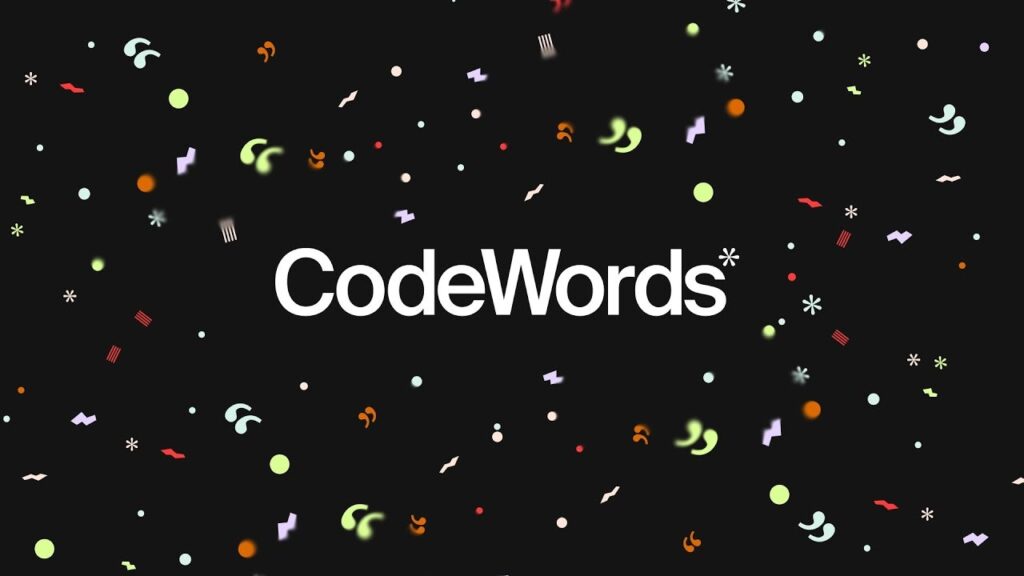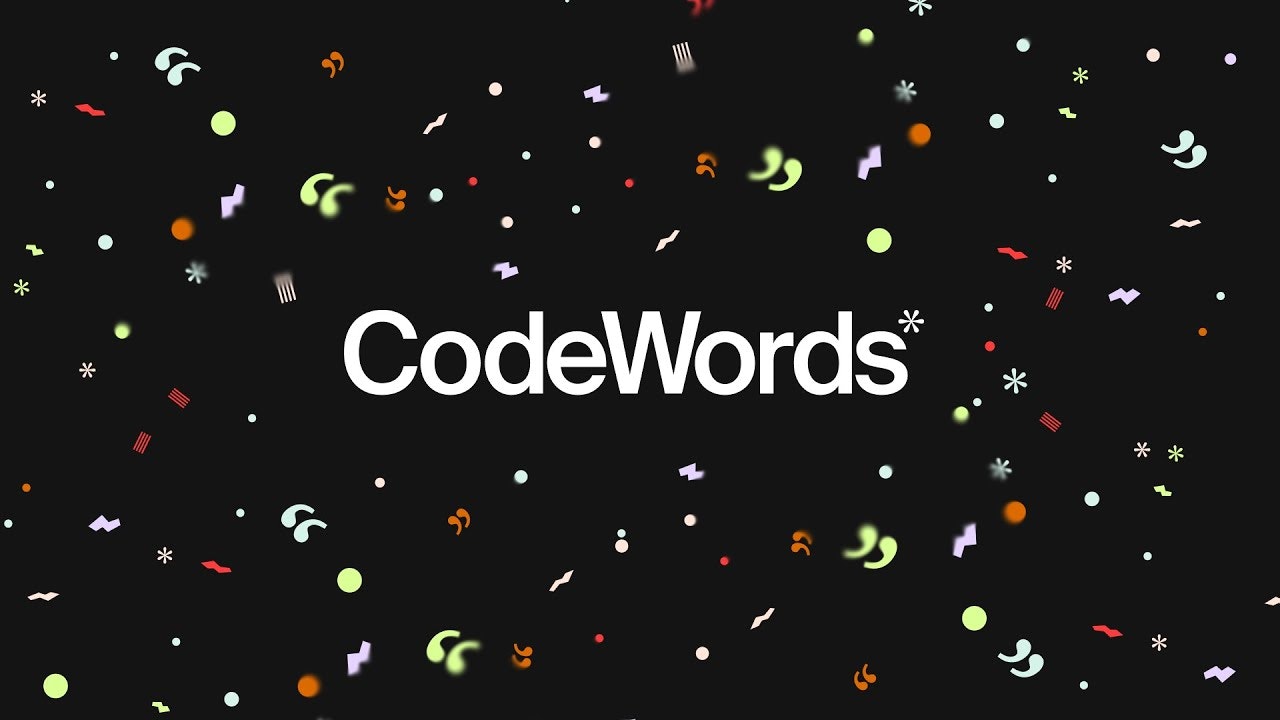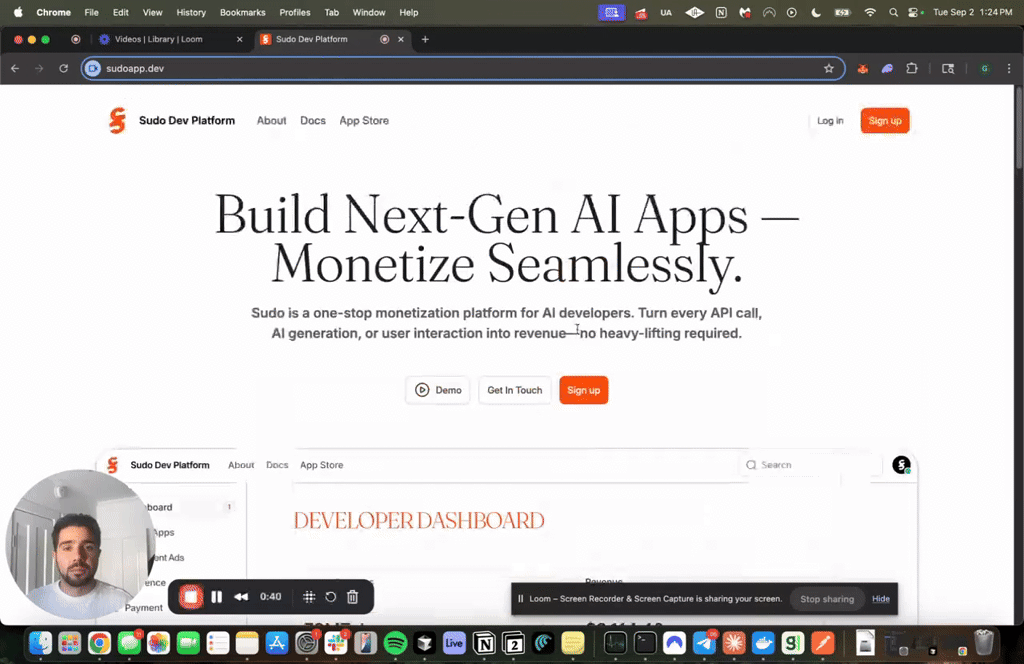AI Native Product Insights – 2025W38

Based on Product Hunt data, we’ve curated a selection of AI Native applications that demonstrate how AI is being built into the core of modern products. These AI Native solutions showcase new developments in functionality and are exploring fresh ways of human-AI interaction. Let’s dive into these AI Native applications.
1. CodeWords
Ranking: 2025W38-rank7
Upvote: 497
🚀 Product Overview
CodeWords lets you describe workflows in plain English and instantly turns them into automations using a conversational AI assistant called Cody—no manual configuration or visual builders required.
📋 More Details
Built for founders, ops teams, and no-code freelancers, CodeWords eliminates the need for drag-and-drop tools like Zapier. Cody handles building, testing, debugging, and deploying automations, and adapts to your interaction style over time. Workflows are written as code, with reusable templates and integration options across Slack, WhatsApp, Telegram, and more.
📊 Evaluation
AI Native Application Modernization: 89/100
CodeWords is built from the ground up as an AI-native product. Cody isn’t a feature—it’s the core platform interface, executing all automation logic autonomously via natural language, making complex workflow creation accessible without traditional UI.
🔗 Website
https://agemo.ai/codewords?ref=producthunt

2. Cal.ai Phone Agent
Ranking: 2025W38-rank10
Upvote: 433
🚀 Product Overview
Cal.ai Phone Agent transforms scheduling into a human-like phone conversation. Instead of web forms or back-and-forth emails, customers can schedule, reschedule, or get reminders via natural calls—improving user experience and business outcomes.
📋 More Details
After an Enterprise beta period, Cal.ai Phone Agent is now available to all users with a flexible credit system. It can intelligently convert contact forms into actionable sales calls, support multilingual voice styles, and work round-the-clock without human intervention. Users can personalise tone, add business knowledge, and eliminate the need for customers to spell out their emails.
📊 Evaluation
AI Native Application Modernization: 89/100
Cal.ai is built around AI-powered voice agents, placing generative AI at its core—not as a bolt-on. With natural call handling, SMS follow-ups, and contextual understanding, it’s a strong example of an AI-native scheduling solution.
🔗 Website
https://cal.com/?ref=producthunt

3. GPT-5 Codex
Ranking: 2025W38-rank17
Upvote: 326
🚀 Product Overview
GPT-5 Codex is a specialized version of GPT-5 tailored for autonomous software development. It’s capable of handling complex coding tasks independently, and it works across terminal, IDEs, the web, and even mobile—streamlining the entire development workflow.
📋 More Details
Commenters highlight that GPT-5 Codex consistently outperforms other models like Claude Sonnet 4 in real-world coding scenarios. With support for both cloud-based workflows via GitHub and local development via VS Code, it offers high flexibility and productivity for developers.
📊 Evaluation
AI Native Application Modernization: 92/100
Codex is deeply agentic and uses generative AI as a foundational layer—not an add-on. It demonstrates autonomous decision-making and real-time collaboration within developer tools, making it a standout AI-native platform for software tasks.
🔗 Website
https://openai.com/?ref=producthunt

4. Sudo AI
Ranking: 2025W38-rank20
Upvote: 314
🚀 Product Overview
Sudo AI provides a single API that lets developers seamlessly route across multiple top large language models—like OpenAI, Anthropic, and Gemini—enabling faster, cheaper, and more flexible AI app development without vendor lock-in.
📋 More Details
Created by a long-time AI engineer frustrated with the fragmented dev stack, Sudo offers not just model routing but also includes a context management system (CMS), real-time end-user billing tools, and optional AI-native ads. The beta offers routing and dashboards today, with context memory and monetization tools rolling out soon.
📊 Evaluation
AI Native Application Modernization: 91/100
This is a strongly AI-native platform—routing, memory management, and monetization are all powered by and built for generative AI workflows, not bolted on. It’s purpose-built to optimize LLM usage end to end.
🔗 Website
https://sudoapp.dev/?ref=producthunt

5. Grok 4 Fast
Ranking: 2025W38-rank28
Upvote: 266
🚀 Product Overview
Grok 4 Fast is a new multimodal reasoning model from xAI, featuring a massive 2 million-token context window. It delivers state-of-the-art performance at a fraction of the typical cost and is currently freely available via the Grok app.
📋 More Details
Grok 4 Fast stands out for speed (~190 tokens/s), low API pricing ($0.20/M input & $0.50/M output tokens), and broad accessibility—it’s available for free through OpenRouter and the Grok app on all major platforms.
📊 Evaluation
AI Native Application Modernization: 91/100
Grok 4 Fast is AI-native by design. Multimodal reasoning, long context, and inference optimization are deeply integrated—not just add-ons. It sets a new benchmark in intelligent cost-efficiency.
🔗 Website
https://x.com/i/grok?ref=producthunt

6. tambo
Ranking: 2025W38-rank30
Upvote: 235
🚀 Product Overview
Tambo is an open-source orchestration framework that connects AI directly to React UIs. It allows AI models to interact with and render your application’s components—charts, forms, dashboards, and more—all from natural language input.
📋 More Details
Designed to bridge the gap between AI and UI logic, Tambo eliminates the need for manual wiring of flows. Developers register components once, and Tambo takes care of rendering, syncing props, and streaming updates. It’s already helping teams—from indie hackers to large enterprises—bring demos to life over a weekend.
📊 Evaluation
AI Native Application Modernization: 91/100
Tambo is fundamentally AI-native: it treats generative AI as the primary interface, allowing natural language to drive real-time UI generation in React. This deeply integrated approach earns it a high modernization score.
🔗 Website
https://tambo.co/?ref=producthunt

7. Google Chrome with AI
Ranking: 2025W38-rank35
Upvote: 214
🚀 Product Overview
Google Chrome is evolving beyond a web browser into an AI-powered assistant with native Gemini integration. From contextual browsing to smart form filling, it brings productivity and intelligence directly into your tabs.
📋 More Details
Gemini is embedded across Chrome to summarize pages, compare tabs, and respond to queries conversationally. New agent-like features let users carry out actions like booking, shopping, or recalling old sites. Native AI also powers an enhanced Omnibox, scam detection, notification filtering, and adaptive permissions.
📊 Evaluation
AI Native Application Modernization: 89/100
AI is fundamental—not an enhancement—in this release. The browser itself serves as an AI interface, where generative intelligence is embedded into daily browsing activities through conversational UX, agentic flows, and actionable integration with Google services.
🔗 Website
https://blog.google/products/chrome/chrome-reimagined-with-ai?ref=producthunt

Statement: Evaluation results are generated by AI, lack of data support, reference learning only.